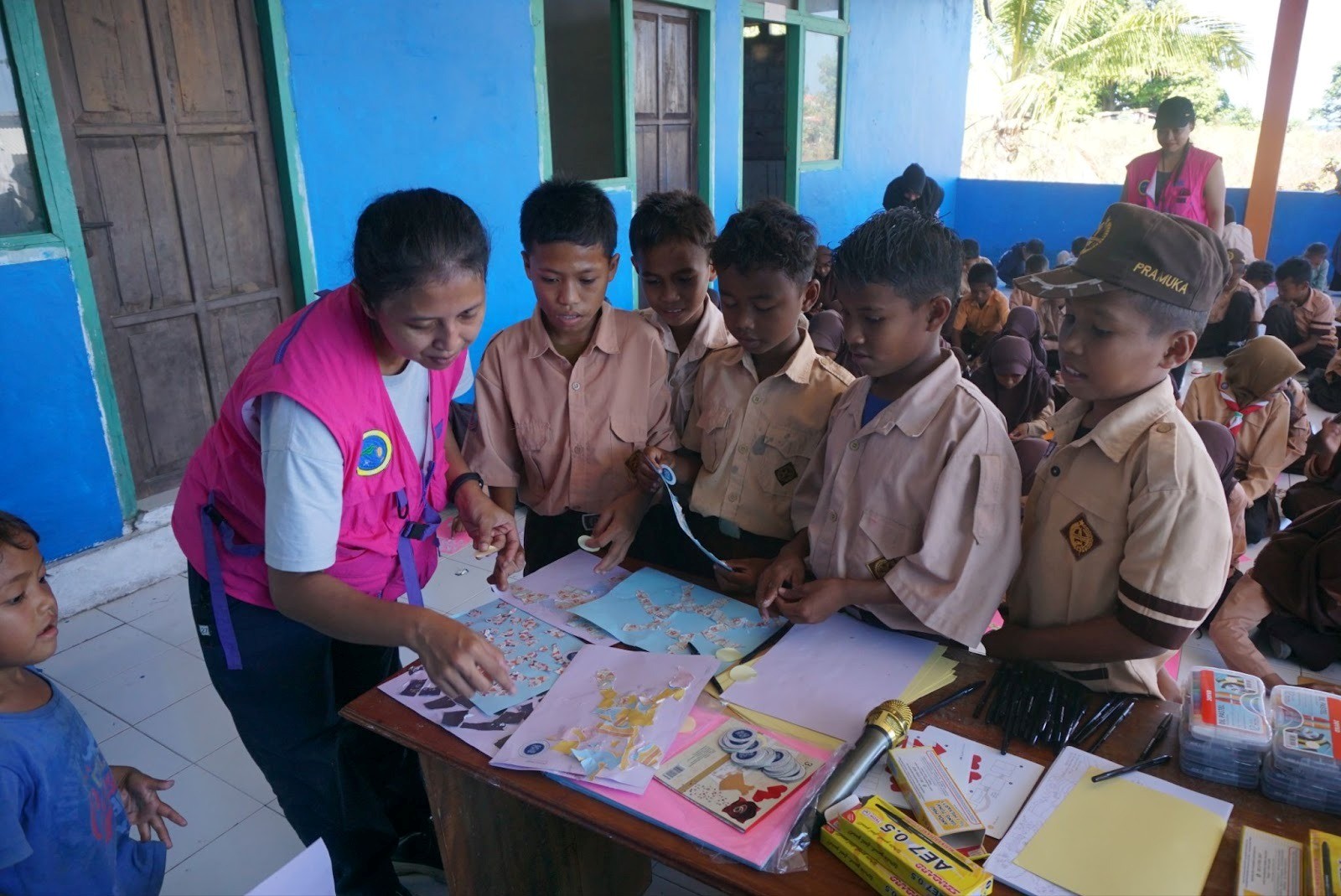Studium Generale ITB: Singgih Susilo's Inspirative Story in Building Village Self-Sufficiency through the "Cyral-Spiriterial" Concept
By Adi Permana
Editor Adi Permana

BANDUNG, itb.ac.id – Village is an important aspect of our nation because it has some untapped potential. Each village has its own unique story and carries the noble values that we have received to this day.
The Cyral-Spiriterial concept is a term that consists of two phrases, city-rural and spiritual-material. An understanding of the condition where every village or area has the ability to balance spiritual and material needs, a condition that is needed to achieve global prosperity.
This concept was explained by Singgih Susilo Kartono, an alumnus of ITB Product Design Study Program class of '86, on General Lecture KU4078 Studium Generale. The theme that he brought up was "Cyral-Spiriterial: A Village Self-Reliance Concept to Achieve Global Prosperity". Singgih Susilo Kartono is the designer of Radio Kayu Magno and Spedagi Bamboo Bike. Through his unique ideas, he was able to bring the global spotlight onto the Kandangan Village, a place where he designed and manufacture his products. Singgih has won many world-class awards such as Japan Good Design Award G-Mark 2008 and London Design Museum's Brit Insurance Design Awards 2009. He also is the pioneer of the village revitalization program through Papringan People's Market which has inspired hundreds of villages in Indonesia.

According to Singgih, this Cyral-Spiriterial concept has seen many implementations in villages in Indonesia. As an example, various ceremonies such as rice harvesting are often accompanied by a certain ritual.
According to him, currently, the industrialized world has passed the turning point of materialism and wanted to return to more traditionalized way of life towards the spiriterial era. Villages in industrialized nations have different starting points of development, therefore their growth cannot be compared. If we follow their pattern of development, we will rather lose what we currently have.
In his presentation, he conveyed that the development pattern of the villages in the developing nations does not follow the cyral-spiriterial behavior like what happened to the villages in the developed nations, but rather is growing towards achieving spiriterial balance. Let these villages develop contextually according to their own inert values.
"Villages have enormous growth potentials. We only need sincerity to realize those potentials," said Mr. Singgih.
Singgih admitted that he is not a designer that keeps up with the market trends. Up to this point, he just followed his call and observed the condition of his surrounding. That attitude is what encouraged him to create various exquisite products such as Magno (a woodcraft brand), Spedagi (bamboo-framed bicycle), and Pasar Papringan.
Magno is a product that he designed for his bachelor's final project. Magno presented the value of wisdom. Wisdom of human resource potential and Indonesia's wonderful nature. Magno is not indiscriminately produced. Every product was made through a careful design process, quality production process, and the most important is the philosophy behind each product.
Not only that, but he also developed Spedagi which is a locally-made bicycle that uses bamboo as its frame. Bamboo was chosen because of its abundance in Kandangan Village. Bamboo is also a unique and flexible material, thus making it suitable to be used as a bicycle frame. His Spedagi has gone through testing in a Japanese laboratory and long-distance testing from Aceh to Denpasar.

On the other side, the bamboo plant also has some benefits for the environment such as not needing reseeding, improving soil quality, protecting soil from erosion, and can retain a high quantity of water. This Spedagi was also developed as a social movement project, protecting the environment through sustainable ways. Through Spedagi, he hopes that people can feel closer to nature. "This Spedagi is an embodiment of locality that produces originality," he said.
Meanwhile, Pasar Papringan is a market that is located inside a bamboo forest. Formerly, the market's area was littered with trash. Singgih then took the initiative to solve this littering problem by teaming up with the local community to turn the place into an outdoor market. By applying design thinking, Singgih underlined behaviors and rhythms that are in line with activities that are liked by the communities thus creating this market-approach concept.

Pasar Papringan has become an inspirative and innovative project. Its progress so far is a form of direct experimentation because there are no previous references. The challenge is its location that relatively far, but thankfully because of social media publications this market is becoming more and more popular.
Villages in Indonesia have strong roots with their long history. The cyral concept with its four pillars (small, local, opened, and connected) needs to be implemented. Also, to achieve the spiriterial concept we need to be cunning and able to see opportunity based on the connection between the past and the future.
Worlds need contextual education, that is which can adapt to the local needs, instead of imposing global needs. Singgih considers that the deterioration that is happening right now happened because we are too focused on competing instead of collaborating.
Reporter: Lukman Ali (Mechanical Engineering, 2020)
Translator: Favian Aldilla R (Civil Engineering, 2019)

.jpg)
.jpg)


.jpg)


